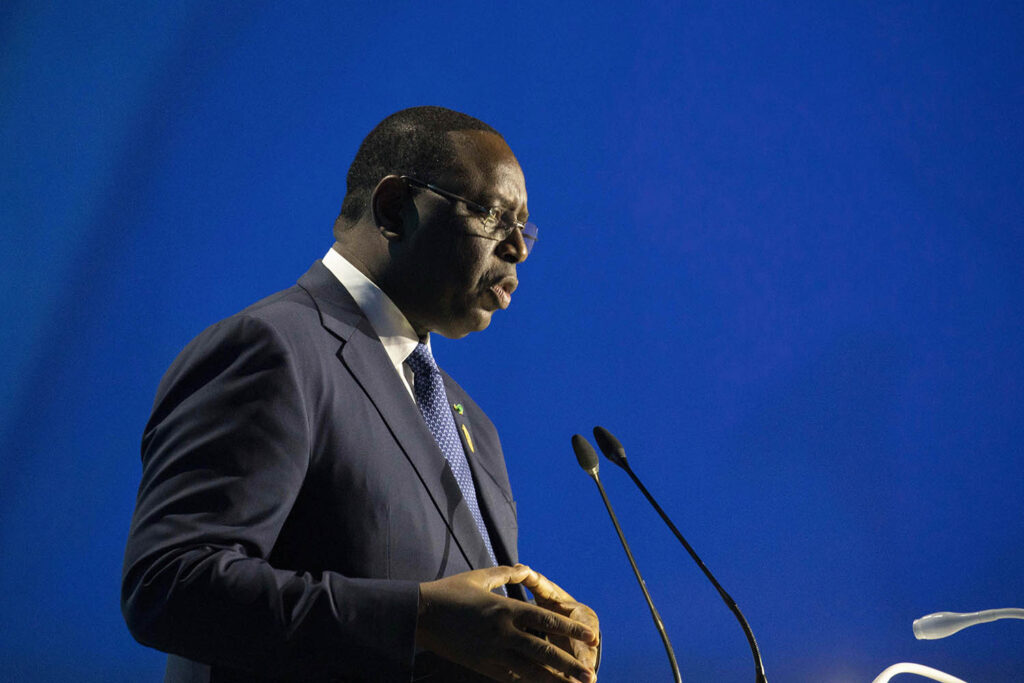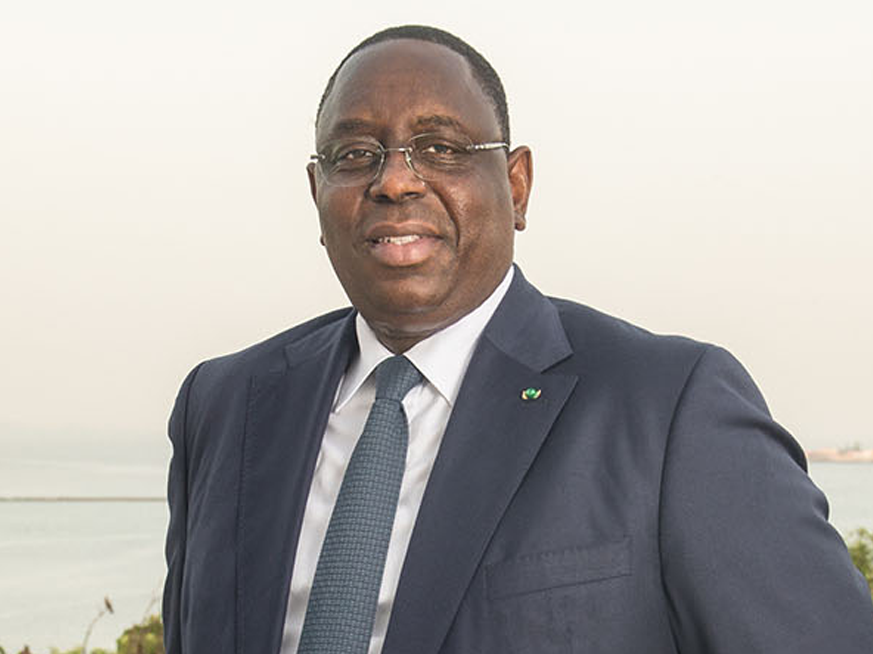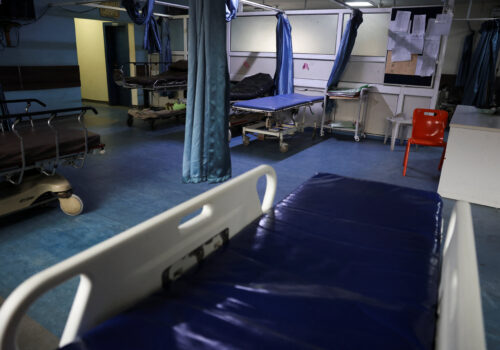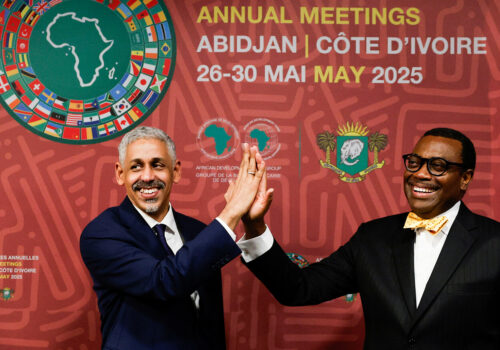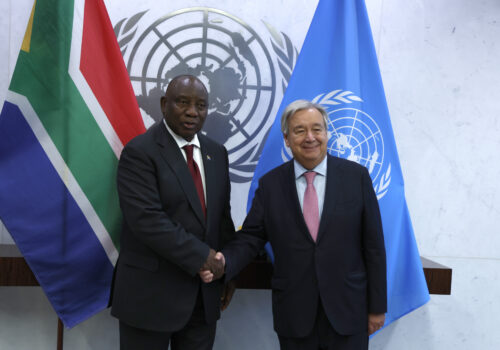Watch the full event
Giving the African continent permanent seats on the United Nations Security Council (UNSC) is “the right thing to do,” argued former Senegalese President Macky Sall. “The continent has to be involved in the management of crises.”
Sall, who is also a member of the Atlantic Council’s International Advisory Board, gave his take on the UNSC debate during a Front Page event hosted by the Atlantic Council’s Africa Center on Monday, as the UN General Assembly continued in New York. The former African Union chairperson, speaking in French throughout the event, argued that for the Security Council to serve everyone, it will need to have permanent members representing Africa.
He pointed to the Ezulwini Consensus, a proposal backed by the African Union that calls for at least two permanent seats (with veto power) and five total nonpermanent seats for African nations. But Sall, a previous chairperson of the African Union, said that before this consensus becomes reality, African nations will need to determine how they will allocate seats.
“Africa must organize itself so that . . . when the time will come, we’ll be ready so that Africa can find its right place,” he said.
Below are more highlights from Sall’s conversation with Julian Pecquet, US correspondent with Jeune Afrique/The Africa Report, in which Sall outlined the challenges facing the African continent, from climate and energy uncertainties to debt crises.
A just transition
- Sall said it is “completely unjust” to argue that developing countries in Africa shouldn’t tap their fossil-fuel resources, considering the continent has produced less than 4 percent of the world’s greenhouse gas emissions.
- “We can’t condemn Africa,” Sall said. “Africa has to continue to exploit its natural resources to be able to develop itself, to be able to industrialize.”
- Sall said that while African governments are considering non-fossil-fuel-based sources of energy, such as nuclear, such sources require “basic infrastructure” that the continent sorely lacks. “We need railways, we need bridges, we need the nuclear power plants,” he explained.
Debt dilemma
- Yet, the loans currently available for building such infrastructure “are short-term, and the interest rate is very high,” Sall said, raising fears among African leaders of landing in a debt crisis. “It’s not how we rebuilt Europe” after World War II, he said, pointing to the US-funded Marshall Plan.
- With Africa’s infrastructure financing gap estimated at up to $108 billion, Sall said that more private investment and public-private partnerships could make financing needed infrastructure easier. But, in the end, “it’s necessary to change the financial architecture of the world,” he said.
Keeping the peace
- Sall said that Africa will continue to grapple with security challenges, including the “terrorism that is plaguing the whole continent today.” He added that Sahel countries in particular “have to spend a lot of their resources to fight,” meaning they have less money for development-related initiatives such as education and health.
- As several Sahelian states experienced coups d’état over the past few years, Sall said that the Economic Community of West African States—which once included these Sahelian countries—struggled to respond to the crisis and impose sanctions.
- And now, since Burkina Faso, Mali, and Niger have left and formed the Alliance of Sahel States, Sall said that it is important to “maintain dialogue” between the two regional bodies to avoid “consequences” that would result in citizens losing important benefits, such as freedom of movement.
The youth wave
- Sall pointed to one final challenge: Harnessing Africa’s talented youth. He pointed out that the continent’s population is set to surge, yet trained young people often leave the continent seeking opportunities elsewhere.
- “One in four in the future is going to be an African youth,” Sall said, “so we should not waste our time just consuming things that are already being produced and put on the market. We have to invest ourselves into training.”
Katherine Golden is an associate director of editorial at the Atlantic Council.
Watch the full event
Further reading
Thu, Aug 14, 2025
Biased credit ratings are costing Africa billions—and worsening its health crises
AfricaSource By
As debt payments outpace spending on health and education, African leaders are renewing calls to overhaul a credit ratings system they say punishes reform and deepens fragility. Zambia is a case in point.
Tue, Jun 3, 2025
Experts react: How Sidi Ould Tah will shape the African Development Bank
AfricaSource By
The Bank's newly elected president ran on a platform that focused on mobilizing more capital and reforming financial systems. Our experts outline what that will look like in reality.
Mon, Sep 23, 2024
What would it mean for Africa to have two permanent UN Security Council seats?
New Atlanticist By Rama Yade
African nations gaining permanent Security Council seats would make the institution more representative, but significant hurdles remain.
Image: Macky Sall delivers his speech during the opening of the High Level Summit of the 2022 United Nations Climate Change Conference COP27 at the International Convention Center on November 7, 2022. Photo by Gehad Hamdy/DPA via Reuters.
